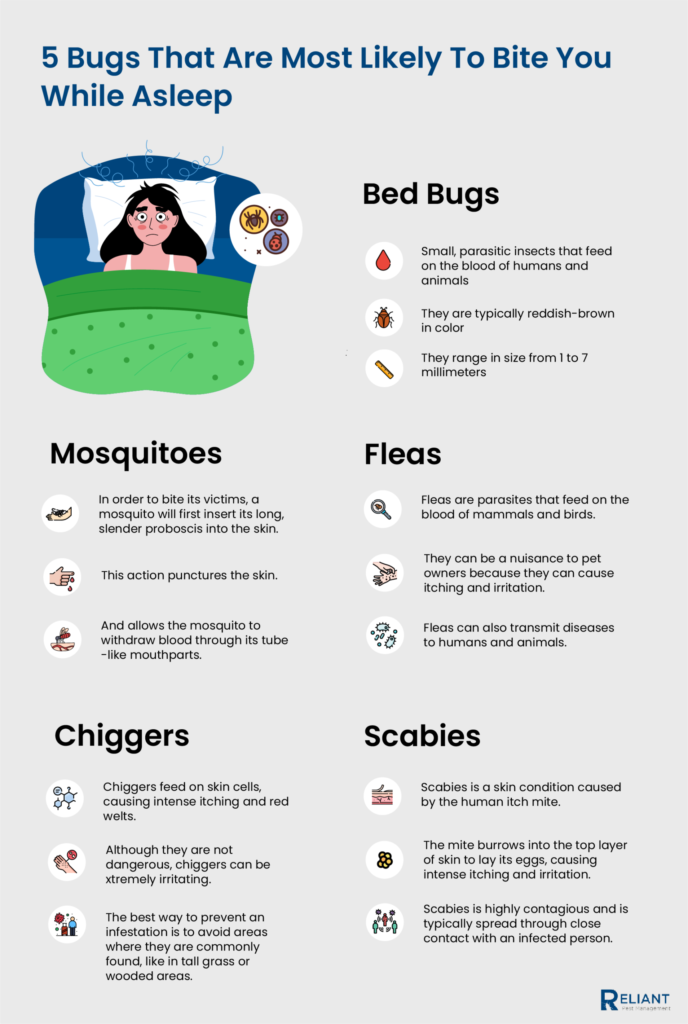Have you ever woken up in the middle of the night feeling itchy and confused, only to discover tiny red bumps on your skin? While many things can cause nighttime discomfort, one surprising culprit could be ants. Though it’s not common for ants to crawl on you at night, there are certain circumstances that might make your bed an attractive target for these tiny creatures. This article will delve into the reasons behind do ants crawl on you at night, explore what attracts them to beds, and provide practical tips on how to prevent future encounters.
This comprehensive guide will cover everything from identifying signs of an ant infestation to implementing effective strategies for eliminating attractants and preventing future bites. By understanding the factors that draw ants to your bed, you can take proactive steps to ensure a peaceful and bite-free night’s sleep.
Ant Bites at Night
While it might seem strange, do ants crawl on you at night? The answer is yes, though it’s not as common as other types of insect bites. Ants are primarily active during the day, foraging for food and water. However, certain species, like carpenter ants or fire ants, may become more active at night, especially if they have established a nest near your sleeping area.
Ant bites at night can be quite irritating, often causing small, red bumps that itch intensely. The severity of the bite depends on the ant species involved. Some ants, like fire ants, deliver a painful sting that can cause swelling and even allergic reactions in sensitive individuals. If you experience multiple bites or notice any signs of infection, it’s important to consult a doctor.
What Attracts Ants to Beds
Several factors can make your bed an appealing target for ants:
Warmth and Moisture
Ants are cold-blooded creatures that seek out warm environments to regulate their body temperature. Your bed, especially during the colder months, can provide a cozy haven for these tiny insects. Additionally, moisture from sweat or spilled drinks can create a damp environment that attracts ants seeking hydration.
Food Crumbs and Spills
Even the smallest food crumbs or spills can be irresistible to ants. If you’ve had a late-night snack or accidentally dropped some food on your bedsheets, it could attract these hungry insects.
Pet Food and Water Bowls
Leaving pet food and water bowls out overnight can inadvertently create an ant buffet. Ants are attracted to the scent of pet food and will readily feast on any leftovers.
Signs of an Ant Infestation
If you suspect you have an ant infestation, look for these telltale signs:
- Ant trails: Observe your bed and surrounding areas for lines of ants marching back and forth. These trails indicate a well-established route to a food source.
- Nests: Look for small mounds or clusters of ants near your bed, under furniture, or in wall voids.
- Droppings: Ants leave behind tiny black droppings that resemble pepper flakes. You might find these near ant trails or nests.
Eliminating Ant Attractants
Taking steps to eliminate ant attractants is crucial for preventing future bites:
- Cleanliness: Regularly vacuum and dust your bedroom, paying special attention to areas around your bed. Wipe up any spills immediately and store food in airtight containers.
- Pet Food Management: Feed your pets at designated times and remove their bowls after meals.
- Moisture Control: Fix any leaks or damp areas in your bedroom and ensure proper ventilation.
Preventing Future Ant Bites
In addition to eliminating attractants, consider these preventative measures:
- Seal Entry Points: Inspect your bedroom for cracks or gaps around windows, doors, and baseboards. Seal these openings with caulk or weather stripping to prevent ants from entering.
- Natural Repellents: Place natural ant repellents like peppermint oil, cinnamon, or citrus peels near potential entry points.
Conclusion
While encountering do ants crawl on you at night can be unsettling, understanding the factors that attract them and taking proactive steps to eliminate attractants can significantly reduce the risk of future bites. By maintaining a clean bedroom environment, managing pet food, controlling moisture, and sealing entry points, you can create an inhospitable environment for ants and enjoy peaceful nights free from unwanted crawling companions.



